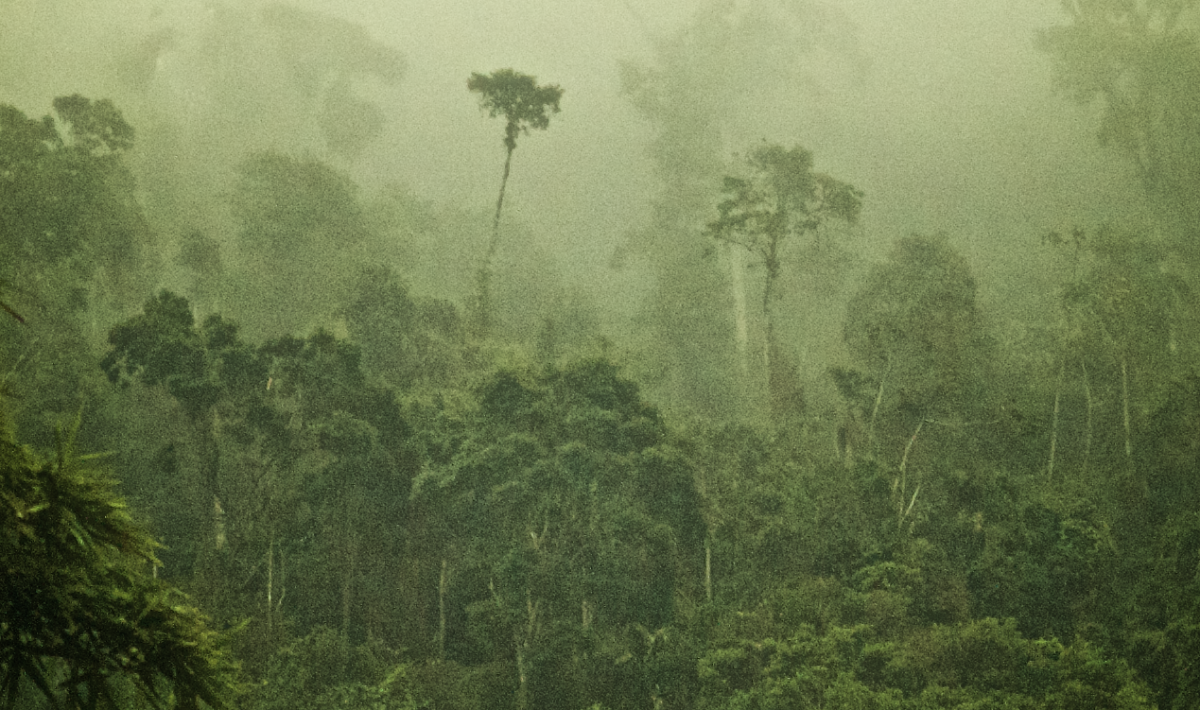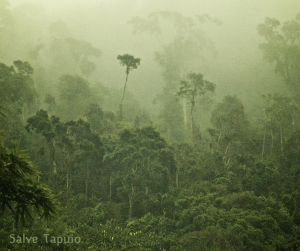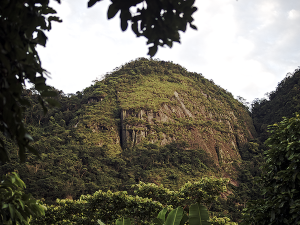In the previous post Bird Hunting I finished by asking (imploring really) you to tell me what can be done.
The truth is, it isn’t difficult. Espírito Santo isn’t Pará and Iconha is far from Anapu (for those of you unfamiliar with these places, Anapu is the name of the city, in the state of Pará, where Dorothy Stang was murdered in her struggle against environmental criminals). The money generated here by these local activities just isn’t that much.
Tapuio is just a tiny dot of forest, a fringe of trees along a mountain ridge. Almost all the wildlife, both flora and fauna, is gone. Birds have been collected and put into tiny cages, sold off for the price of a gold chain or a video game.
But the devastation is enormous. The Atlantic forest is almost gone. In Espírito Santo, approximately 2% of the original cover remains. Just 2%. So a little damage goes a long way.
Mammals have been hunted out of existence, or their food sources destroyed, dooming them to starvation. Dogs accompanying workers and hunters have succeeded in killing any that might have escaped the hunters’ bullets.
Trees have been removed to make way for pasture, coffee, bananas, and corn. Orchids have been collected and sold off, like birds, for the price of a gold chain, or an iphone, or extra beer for a weekend party.
People destroy because they face minimal social repercussions. Legal punitive action creates people’s martyrs, the image of the poor struggling dirt farmer just trying to survive, an image very far removed from reality. The typical environmental criminal around here is young, 23 or so, solidly middle class, living with his parents, looking only to supplement his income in order to buy a few more luxuries. Very often he isn’t even a farmer. Judges will frequently reduce penalties or even dismiss charges.
There are practically no social repercussions. The environmental criminals are neighbors, uncles, cousins, brothers. Or they are the sons of influential people. They are rarely confronted or socially ostracized for fear of offending someone who might be useful later.
There is also a general attitude that nature is pretty, but not necessary. It is even seen as an impediment to progress.
Shame, an effective means of punishment, is rarely practiced here. Instead, people tolerate.
And the environment is destroyed.
But unlike the Amazon, the solution here is easy.
What will stop this destruction? Your presence. They know they will suffer no repercussions from local people. But they can be shamed by people from what they consider to be more developed regions.
Your presence, taking pictures, doing research, just walking around, would put an end to the destruction in Tapuio. It would stop completely. Taking a vacation? Make it in Tapuio. Know a biologist or environmentalist or anybody studying in these fields casting about for research? Guide them to Tapuio. Know a writer or artist looking for a quiet place to relax, finish up some work without distractions? Send them to Tapuio. It isn’t about front line fighting. There would be no tense confrontations. All it takes here is the presence, even if occasional, of people from the outside who care. Your presence is all it takes.
So come to Tapuio. Spend a week or two. Watch the sun rise out of the Atlantic Ocean, walk in the rain with frogs. catalogue what few orchids and bromeliads remain. You won’t even see the destroyers because as long as you are there, they won’t come around.
Think about it.
Salve Tapuio



